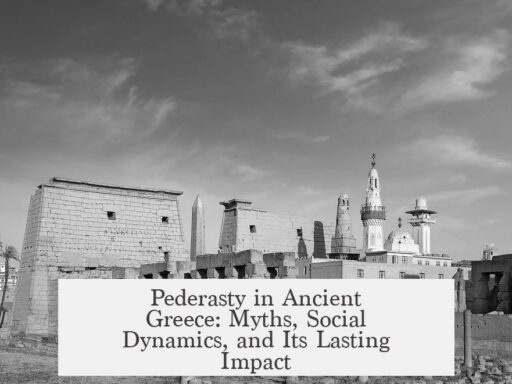The Ancient Greeks and Romans named the planet Jupiter after their chief deity rather than naming the Sun after him because celestial bodies were associated with different gods based on their observed characteristics and roles in mythology and cosmology. Jupiter, the largest visible planet, was linked to Zeus (Greek) and Jupiter (Roman) due to his status as king of the gods and the prominent, dominant nature of the planet in the night sky. Meanwhile, the Sun had its own distinct divine personifications: Helios and later Apollo in Greek tradition and Sol in Roman culture.
In ancient mythologies, naming conventions tied planets and celestial objects to gods whose attributes reflected the objects’ appearances and perceived influence. Jupiter, visible as the brightest and most massive planet to the naked eye, symbolized power, authority, and rulership, traits fitting the head of the pantheon.
The Sun was a unique and central source of life and light. The Greeks personified the Sun as Helios, a god who daily drove a chariot across the sky. Later, Apollo absorbed many of Helios’s solar attributes, especially through classical and Hellenistic periods. Romans followed a similar tradition, identifying the Sun with the god Sol. Because these figures were already distinct deities separate from the pantheon’s king, the Sun retained a different divine name.
- Jupiter (planet) reflected the gods’ understanding of the cosmos and mythological hierarchy.
- The Sun was identified with Helios/Apollo (Greek) and Sol (Roman), emphasizing its role as a radiant, life-giving force distinct from rulership.
- Celestial naming linked observable characteristics with divine personalities and functions rather than simply assigning the chief deity to the brightest object.
Ancient astronomers and myth-makers viewed the heavens through a blend of observation and storytelling. The planets were “wandering stars” with irregular paths, believed to influence human affairs and governed by distinct deities. Jupiter’s commanding presence aligned well with Zeus/Jupiter’s supreme standing. The Sun’s steady and predictable trajectory matched the reliable, central solar gods.
This differentiation highlights how religious belief and early astronomy intersected to generate naming conventions that balanced celestial characteristics and theological roles.
- Jupiter named for the chief god due to prominence and symbolic rulership.
- Sun retained separate divine identity, related to solar deities rather than the chief god.
- Names reflected mythological significance and astronomical observation together.
Why Did the Ancient Greeks and Romans Name the Planet Jupiter After Their Head God Instead of Naming the Sun?

The Ancient Greeks and Romans named the planet Jupiter after their head god (Zeus in Greek mythology and Jupiter in Roman) because the planet’s enormous size, brightness, and dominant presence in the night sky symbolized divine authority and power more fittingly than the Sun itself, which was associated with other deities and concepts. In short, Jupiter was the celestial manifestation of the king of gods, while the Sun had its own rich mythological identity.
Now, let’s unpack that. Why *not* name the Sun after Zeus or Jupiter? Wouldn’t it make more sense since the Sun is the brightest, most life-giving object in the sky? At first glance, yes—but mythologies don’t always follow the logic of physics.
The naming is a fascinating tale of astronomy mingled with religion, cultural symbolism, and the way ancient civilizations viewed the heavens.
The Celestial Players and Their Mythological Roles
The Sun, or Helios in Greek mythology, held a very distinct role. He was the personification of the Sun itself, driving a chariot across the sky daily. His journey explained the natural cycle—day and night. The Romans adopted this figure too but also had Sol, their own solar deity. Both Greeks and Romans treated the Sun as a god embodied by a distinct character, separate from Zeus or Jupiter.
Zeus and Jupiter, on the other hand, reigned supreme in the pantheon of gods. They embodied authority, justice, and thunder—themes connected to power rather than light. Naming the largest planet after the head god was symbolic rather than literal. Jupiter the planet, visible even to the naked eye, was the king of planets, just like Zeus (or Jupiter) was the king of gods.
Why Jupiter—The Planet, Not the Sun?

Imagine ancient astronomers looking up at the night sky. Which object captures attention? The Sun is out during the day, naturally stealing the spotlight; the Moon and stars fill the night. But when Jupiter shines brightly in the darkness, its majestic size and intense brightness set it apart. It stands alone as a visible giant, a ruler among planets. This striking celestial dominance made it an ideal candidate to bear the name of the chief god.
Unlike the Sun, Jupiter is not a constant presence—its appearance in the night sky was special. The ancients could observe its majestic procession and movements against the starry backdrop, often linking it with power and rulership. Naming such a notable body after Zeus/Jupiter reinforced the god’s esteem.
Distinct Deities for Distinct Celestial Bodies
In ancient times, gods and celestial objects didn’t always map one-to-one. The Sun had its distinct god (Helios or Sol), the Moon had Selene or Luna, and planets were linked with other gods. This taxonomy helped organize the cosmos and mythology into a neat, meaningful structure.
If Zeus was named after the Sun, what happened to Helios? Mythological roles would overlap confusingly. Instead, by associating Zeus/Jupiter with a visible, mighty planet instead of the Sun, ancients maintained clarity and depth to their pantheon. Each god kept a unique cosmic domain.
A Roman-Greek Cultural Blend

The Romans inherited much of Greek mythos but put their own spin on it. Jupiter became the Roman version of Zeus, embodying supreme power and authority. This continuity explains why the planet’s name stuck across cultures. The Romans were pragmatic—they adopted names that matched the cultural importance of their gods and celestial observations.
Interestingly, the Sun god in Roman culture, Sol Invictus, gained prominence later, especially in the imperial period, but the original naming heritage persisted for Jupiter the planet.
Practicality and Observation
Hundreds of years ago, without telescopes, the brightest and largest visible planets were easily tracked. Jupiter, second only to Venus in brightness among planets, caught attention. Its slow movement across the sky contrasted with stars, which helped early astronomers notice its majesty. This distinctiveness made it a natural symbol of the highest god.
By occupying the “king’s seat” in the cosmos, Jupiter the planet metaphorically mirrored Jupiter the god’s reign on Mount Olympus.
A Cosmic Mystery That Persists

Despite many records and myths, no direct ancient text explicitly states *why* Jupiter the planet was named after the chief god instead of the Sun. Scholars deduce the rationale based on cultural, mythological, and astronomical context. It remains one of those delightful gaps that sparks much debate and wonder in history, astronomy, and mythology circles.
So next time you gaze at Jupiter with binoculars or a telescope, remember: you’re looking up at the planetary reflection of the king of gods himself—an ancient nod to power, authority, and celestial awe.
Summary and Final Thoughts
- The Sun had its own god-figure: Helios/Sol personified the Sun, separate from Zeus/Jupiter.
- Jupiter’s size and brightness made it the most imposing planet, fitting to be named after the top god.
- Distinct roles avoided confusion in mythology and religion by giving celestial bodies unique divine attributions.
- Roman cultural adoption continued Greek astronomical naming traditions.
- Ancient observational astronomy highlighted Jupiter’s prominence in the night sky, directly influencing its naming.
Could the ancients have named the Sun after Zeus/Jupiter? Absolutely, but their mythologies created a cosmos where celestial bodies each had bespoke divine identities, making the planet Jupiter the perfect namesake for the heavens’ king.
Fun question to ponder: If we started naming planets today after gods based on physical traits alone, would the Sun be “Jupiter” and Jupiter be “Huge Bright Guy?” Possibly, but the ancients had a better flair for naming their gods and planets.




